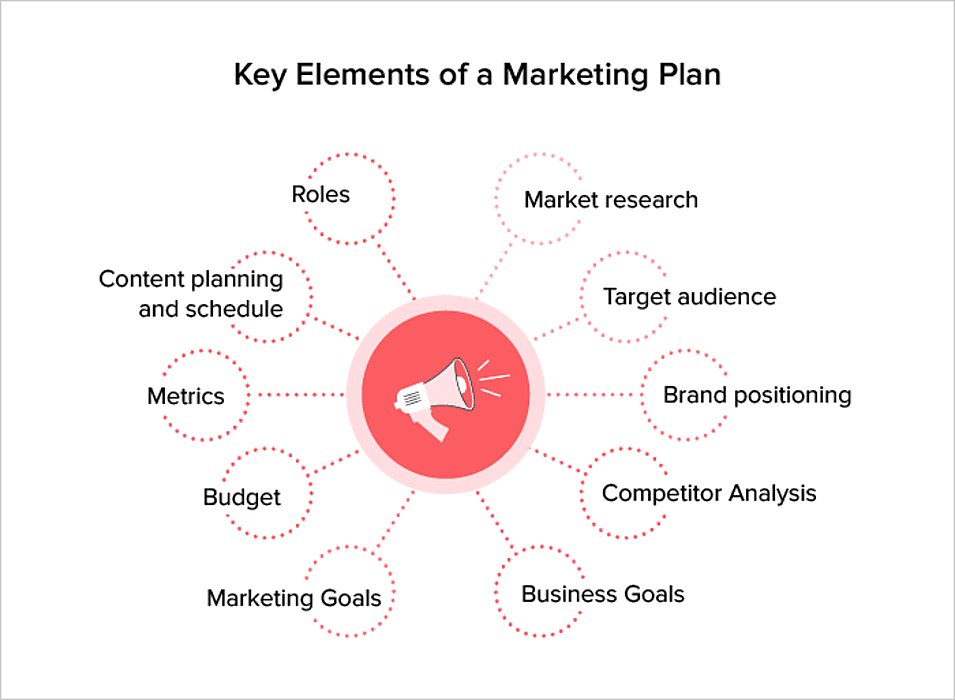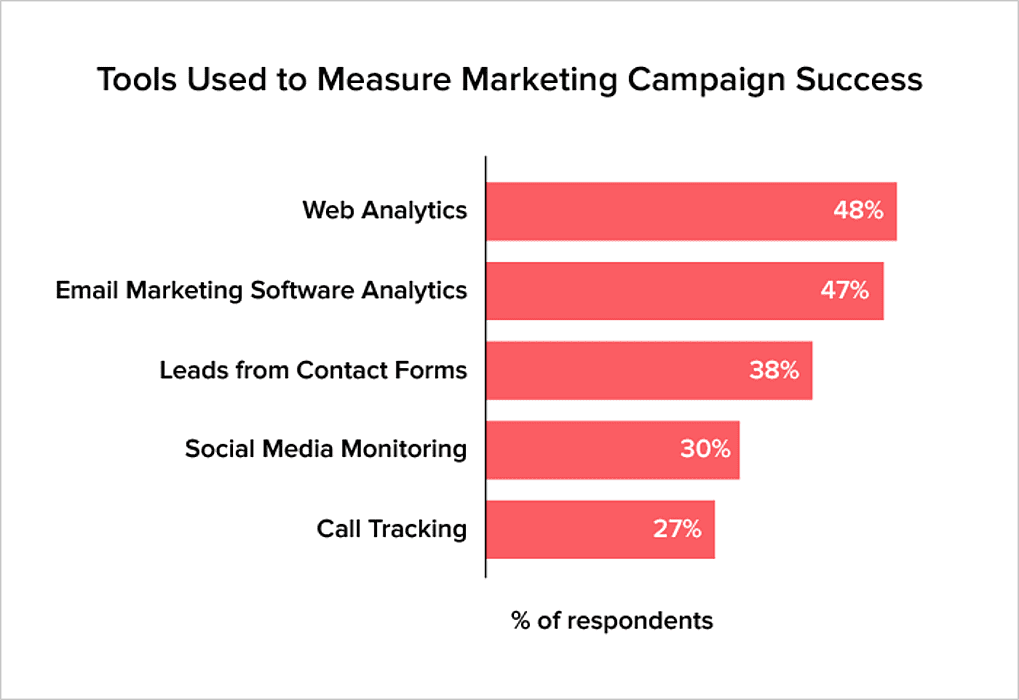
If you are a new entrepreneur, there is a high chance that you would have experienced how marketing yourself and your business is a full-time job in itself. You would have gotten accustomed to the idea that you will probably be spending as much time marketing your business as you would in building new services and products.
What typically starts as an Instagram post grows into a multiple-campaign process when you start scaling your business. On that end, it becomes difficult to make a roadmap. The only solution to this issue lies in creating a marketing business plan.
Entrepreneurs tend to make a marketing business plan to answer the following questions:
- What is the marketing objective?
- Who is the target audience?
- What is the cost of a process/product versus the cost you are paying?
- Who are the people who will help accomplish the goal?
Getting answers to these questions is necessary for businesses to set up on the right path and have the right expectations in terms of the marketing outcome. All of this becomes possible with the creation of a marketing plan. In this article, we are going to dive into the multiple facets of the key elements of a marketing plan - what a marketing strategy is and the components of marketing strategies and plans.
What is a marketing strategy?
A business marketing plan is a strategically designed strategy created to outline and guide marketing activities to achieve key business outcomes. It is the base on which the marketing decisions are made, aligned with the company goals.
Every well-made marketing plan examples and strategies consists of a mix of both internal and external factors. Internal factors are made of performance analysis, outcomes, budgets, marketing roles, etc., and external factors are made of elements like - competitor analysis, customer experience, socio-economic environment, etc.
Now that we have looked into the basics, let us dive into the marketing strategies for growth by looking into the different parts of a marketing plan.
The key elements of a marketing plan
The objective of a business marketing plan is simple - keep the sales funnel full and be in constant connection with your customers. However, achieving this requires a proper marketing business plan, one that consists of all the right details.

1. Market research
If you have already established your business, you would know the market - the sales season, customers, types of vendors and where to find them, and the market size. However, it is critical to write this market research information in your marketing strategy. Keeping this data organized in an easy-to-understand format would help you create a benchmark and set your marketing objective around.
2. Target audience
One of the most essential components of a marketing plan is the target audience. It usually revolves around the details of:
- Age
- Gender
- Location
- Annual income
- Ethnicity, etc.
In addition to these details, marketers should also look into the psychological and behavioral attributes like their mindset about an offering, motivators, habits, and the solutions they seek.
3. Brand positioning
The positioning parts of a marketing plan revolve around brand perception. A mass-scaled user interview, social media interactions, and reviews would tell you what your users think about your brand. But what is necessary is to decide if that is what you would want to be known as. This is where compelling marketing messages come into the picture, where you can communicate how you would want to be seen.
4. Competitor analysis
Competitors are the biggest threats to an organization - a reason why keeping track of them is a critical part of any marketing strategies and plans. No business idea remains unique for long, so the answer to what would make users choose you above your competitors is what competitor analysis helps with. When used as one of the essential components of a marketing plan, it helps with evaluating competitors’ offerings, marketing strategies, and online social media presence. This aids businesses in creating a position in the market, identifying the right market opportunities, and setting up a benchmark to compete against competitors.
5. Business goals
Every business works on set goals, one that has a direct impact on business continuity. Knowing and tracking them as parts of a marketing plan becomes imperative to ensure that marketing efforts play a role on the organizational level. Here are some of the most commonly followed business goals -
- Growth in sales volume
- Growth in order value
- Growth in customer lifetime value
- Increase in funding options
- Increase in business revenue
6. Marketing goals
The marketing goals part of a business marketing plan revolves around creating SMART objectives - Specific, Measurable, Assignable, Realistic, and Time-related. When even one of these elements is missing, you sign yourself up for unmet expectations. Here are some examples of such realistic goals -
- Increase customer queries by 7% in 3 months
- Increase brand awareness by 30% in one quarter
- Lower customer onboarding time to 3 minutes in one month
- Lower app uninstallation rate by 20% in two quarters
7. Budget
It is one of the most critical components of marketing strategy. It helps finalize the activities you will be performing to market your business in order to achieve the business goal. Now, there’s no set way to assign a budget for a campaign or marketing activity; the best way to go about it is to research the different aspects of a campaign - platforms, time, and resources - and make a probable budget.
8. Metrics

Metrics is an element that defines the success of the components of marketing strategy. Everything you add in the parts of a marketing plan, right from business goals to budget and brand positioning, should have the ability to be tracked and measured. Ensuring that you have all the right tracking tools in place will help make sure your marketing activity is working and will support the business goal.
9. Content planning and schedule
Creating a schedule around content marketing would help businesses know what to target, when, and on which platform. When you prepare your content marketing plan, you include things like -
- Pages, products, and services you will target in a specific time
- Format of content planned according to the target audience and platform
- Publishing time
- Publishing platforms
- Post-publishing activities around content promotion
Having a content calendar helps in this regard by aiding you in keeping track of what to push out, where, and what to expect post the content is made live. You can treat it as the roadmap of marketing campaigns - current and upcoming.
10. Roles
The last component of marketing strategy lies in establishing the roles of who will be working on which marketing activity. None of the marketing goals will succeed until it is not executed well by a dedicated team having clear roles and responsibilities.
These essential marketing plan components can keep changing as the world gets introduced to new modes of marketing and promotion. However, for an entrepreneur starting their own business, this sum up every section that answers ‘what are the components of marketing’.
Parting Notes
While the article highlights the key elements of a marketing plan, its effectiveness depends on your team's performance. When marketing starts happening in full force, every employee becomes the touchpoint of its performance delivery. Now even though the marketing plan’s execution decides its outcome, having the right strategy in place is critical.
We know that even after all this information, you would have questions around:
- How do you decide the best business marketing strategy?
- Are these key elements of a marketing plan fit for all the different business types?
- What are the key parts of a marketing plan?
- How to know what metrics you should measure?
- Where will you get the demographic information of different media platforms?
The questions to these answers are specific to businesses. You will only be able to get these details when you partner with the top app marketing agencies. These agencies will help you set the right path regarding where to invest your marketing efforts and what to expect as the outcome. However, we hope this article will get you started in the right direction.
Frequently Asked Questions

By Sakshi Kaushik

Content Writer (B2B Editorial)
A passionate writer and tech lover, she strives to share her expertise with mobile app developers and fellow tech enthusiasts. During her moments away from the keyboard, she relishes delving into thriller narratives, immersing herself in diverse realms.












